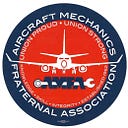Why Whistleblowers Come Forward, And What Happens Next
In a culture that professes to prioritize safety, why, in just the last two years, have over a dozen Southwest Airlines Aircraft Maintenance Technicians brought whistleblower complaints to the FAA? These technicians risk retaliation and personal losses, and yet, still come forward, bringing to light accounts of coercion, information suppression and unlawful maintenance practices. While Southwest portrays themselves as stalwarts for transparency and, of course, safety, the reality is much more concerning.
Of the cases brought to the FAA, many include mechanics who found technical issues with an aircraft that were subsequently told by management not to stray from their explicit scope of work. In one case, a mechanic documented two cracks on the aircraft’s fuselage resulting in it being taken temporarily out of service. He was then sent a letter from Southwest stating, “any further violations of MPM [maintenance procedural manual] may result in further disciplinary action.”
For those outside the industry, the need to question scope of work in aircraft maintenance may seem counterintuitive. The aircraft is the scope and maintaining it should be the work. Any measure that adds to overall safety should be encouraged. But as many aircraft mechanics know, especially those in AMFA, the strict parameters of the job are major sources of contention between mechanics and management.
More pressing, this disconnect over the mechanics’ overall mission is hugely important for the flying public’s safety.
In one whistleblower investigation, the FAA described Southwest’s hostile reaction to an employee’s discovery of corrosion, stating, “Rather than being praised for finding a serious airworthiness issue [the inspector was] questioned as to how and why he came to notice the damage.”
In a separate investigation of the carrier’s Los Angeles operations, the FAA concluded, “All of the mechanics interviewed except two felt pressured and under scrutiny as to whether they were either doing their job correctly or if they were finding too many things wrong with the aircraft.”
FAA investigators described an environment characterized by “Fear of threats or reprisal. This ultimately leads to a degraded level of safety.”
When safety is compromised, it can become unclear for mechanics to know what to do next. In some cases, Southwest demands that its employees focus exclusively on their assigned work tasks, while mechanics know they are truly the last line of defense, and more needs to be done to preserve the integrity of the aircraft.
As tensions between management and mechanics continue to increase, it is important to remember what is at stake. A more robust respect for the expertise of mechanics and their work would go a long way in reducing the number of whistleblower incidents and increasing safety as a whole. As Southwest plans to expand service to Hawaii, there is a real opportunity for the airline to refocus its priorities towards safety.
The Aircraft Maintenance Technicians are currently in the sixth year of contract negotiations with Southwest, during which salary rates and benefits have been frozen. As focus shifts to longer-haul flights, it will be very telling of the real priorities of Southwest if they actually invest in their people — and the safety of their passengers.
